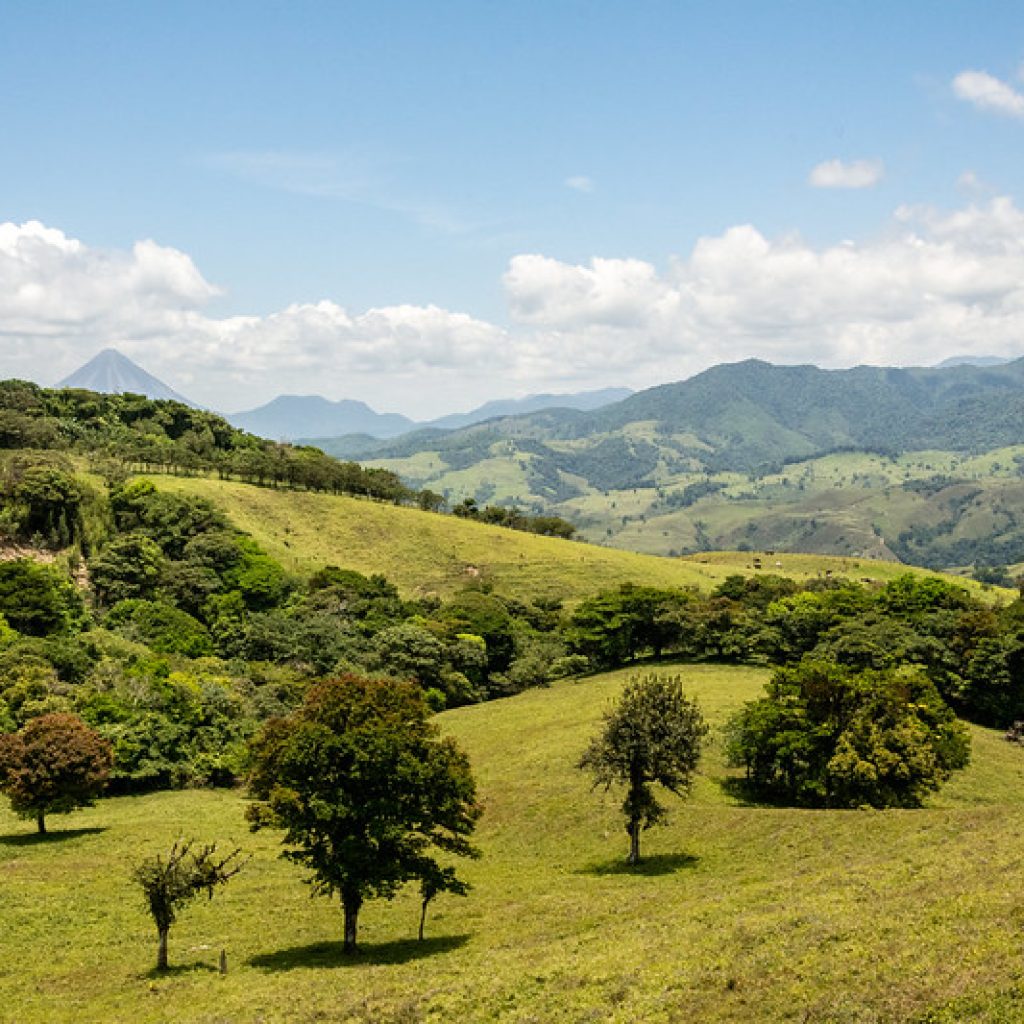Psilocybin retreats in Oregon have gained prominence since the state became a trailblazer in 2020 by legalizing the supervised non-medical use of psilocybin through the Oregon Psilocybin Services Act, also known as Ballot Measure 109. As the first U.S. state to decriminalize and regulate psilocybin, Oregon offers a unique framework for individuals seeking this psychedelic experience.
The Oregon Psilocybin Services Act delineates specific legal requirements that distinguish it from conventional dispensary models. Unlike cannabis, psilocybin products cannot be purchased for off-site consumption. Instead, the law mandates a structured approach, involving licensed facilitators and designated service centers, where clients undergo preparation, administration, and integration sessions.
This article aims to provide an understanding of the legal requirements for planning a psilocybin retreat in Oregon. By examining the key provisions of the Oregon Psilocybin Services Act and the distinct features of the state’s model, individuals can navigate the regulatory landscape and make informed decisions about their psilocybin experiences.
Key Takeaways
- Oregon leads in legalizing psilocybin for therapeutic use.
- Oregon Psilocybin Services Act emphasizes structured personal development.
- Licensing includes manufacturers, labs, facilitators, and service centers.
- Considerations: preparation sessions, facilitator roles, legal compliance, and the Oregon model’s unique features.
Legal Framework in Oregon
The legal landscape for psilocybin in Oregon underwent a significant transformation with the passage of Ballot Measure 109 in November 2020. This measure, officially titled the Oregon Psilocybin Services Act, positioned Oregon as the first U.S. state to decriminalize and regulate the use of psilocybin for personal development.
The Oregon Psilocybin Services Act marked a departure from conventional drug policies by establishing a regulatory framework for the controlled use of psilocybin, a naturally occurring psychedelic prodrug found in certain mushrooms. This legal shift signaled a nuanced approach to psychedelic substances, acknowledging their potential therapeutic benefits within a structured framework.
Licensing Requirements:
The foundation of the Oregon Psilocybin Services Act lies in the issuance of specific licenses to different entities involved in the psilocybin process. These licenses encompass manufacturers responsible for cultivating and processing psilocybin products, laboratories conducting product testing, facilitators guiding clients through the experience, and service centers where psilocybin products are consumed.
Types of Licenses Issued:
The legislation mandates four distinct license types to regulate various aspects of psilocybin use. These licenses ensure a comprehensive oversight of the entire process, from cultivation to consumption.
Purpose and Scope of Psilocybin Use:
Psilocybin use in Oregon, as defined by the law, is centered around “personal development.” Unlike traditional dispensary models, the Oregon Psilocybin Services Act emphasizes a continuum of care, promoting a holistic approach that includes preparation, support during administration, and follow-up integration sessions.
The legal framework established by the Oregon Psilocybin Services Act signifies a departure from conventional drug policies, reflecting a nuanced understanding of the potential benefits of psilocybin within a carefully regulated environment. This legal model serves as a guide for those considering participation in psilocybin retreats in Oregon, offering a structured and legally sanctioned pathway for personal development through the use of this psychedelic substance.
Planning a Psilocybin Retreat in Oregon
In planning a psilocybin retreat in Oregon, it is crucial to grasp the distinctive features of the state’s regulatory model. Unlike conventional dispensary structures, the Oregon Psilocybin Services Act does not permit the purchase of psilocybin products for off-site consumption. Instead, the process involves designated service centers and licensed facilitators, emphasizing a structured approach to personal development.
The Oregon Psilocybin Services Act diverges from the dispensary model commonly associated with cannabis. Psilocybin products cannot be acquired and taken off-site for personal use. This distinct approach prioritizes controlled environments and supervised experiences. While a prescription or referral is not mandatory, clients intending to consume psilocybin at a licensed service center must undergo a preparation session with a licensed facilitator. This prerequisite underscores the commitment to a structured and supportive setting for the psychedelic experience.
Manufacturers:
Entities responsible for cultivating and processing psilocybin products fall under the category of manufacturers. This role encompasses the production aspect of psilocybin within the legal framework.
Laboratories:
Laboratories play a critical role in ensuring the safety and quality of psilocybin products. They are responsible for testing and verifying the potency and purity of the substances involved.
Facilitators:
Licensed facilitators guide clients through the entire process, offering support in preparation, administration, and integration sessions. Their role is integral to creating a secure and beneficial psilocybin experience.
Service Centers:
Designated locations where psilocybin products are both sold and consumed under supervision, service centers form the physical setting for the psilocybin retreat experience. These centers adhere to the legal requirements outlined in the Oregon Psilocybin Services Act.
Understanding the nuances of the Oregon model is essential for those contemplating a psilocybin retreat. The structured approach, involving licensed facilitators and designated service centers, ensures that participants engage in a controlled and supportive environment, aligning with the legal requirements set forth by the Oregon Psilocybin Services Act.
Aspects of the Oregon Psilocybin Services Model
The Oregon Psilocybin Services Model, established by the Oregon Psilocybin Services Act, introduces distinctive features that set it apart from conventional approaches to substance regulation. Understanding these unique aspects is essential for individuals contemplating participation in psilocybin retreats within the state.
The foundational principle of the Oregon Psilocybin Services Model is its emphasis on “personal development.” Unlike recreational models associated with some substances, the state’s approach positions psilocybin as a tool for self-discovery and growth. This intentional framing aligns with a broader commitment to the therapeutic potential of psilocybin within a structured framework. The model extends beyond the mere administration of psilocybin by incorporating a continuum of care. This approach encompasses preparation sessions, support during the administration phase, and follow-up integration sessions. The goal is to provide comprehensive support for individuals seeking a meaningful and health-focused psilocybin experience. Licensed facilitators within the Oregon Psilocybin Services Model bring diverse lived and professional experiences, allowing for culturally responsive services. This aspect recognizes the importance of tailoring psilocybin experiences to the unique needs and backgrounds of individuals, contributing to a more inclusive and accessible approach to personal development.
Unlike traditional dispensary models associated with substances like cannabis, the Oregon Psilocybin Services Act is not product-centered. Psilocybin products cannot be purchased and taken off-site for personal consumption. Instead, the focus is on individuals accessing psilocybin services within a licensed and supportive setting, reinforcing the therapeutic intent behind the state’s regulatory framework. The Oregon model positions psilocybin services as a health and wellness option. This goes beyond the narrow scope of recreational or medicinal use, emphasizing a holistic approach that addresses mental, emotional, and spiritual aspects of an individual’s well-being. The integration of health and wellness principles reflects Oregon’s commitment to fostering a comprehensive and intentional environment for psilocybin use.
The model stands out for its focus on personal development, continuum of care approach, culturally responsive services, non-product-centered model, and integration of health and wellness principles. These unique aspects collectively contribute to a regulatory framework that prioritizes the intentional and therapeutic use of psilocybin within a structured and supportive environment.
Considerations for Participants
Individuals contemplating participation in a psilocybin retreat in Oregon should carefully consider several key factors to ensure a safe and beneficial experience within the framework of the Oregon Psilocybin Services Model.
Participants are required to undergo a preparation session with a licensed facilitator before consuming psilocybin products at a licensed service center. This initial session is essential for providing participants with the necessary information and tools to approach the experience intentionally and responsibly. Understanding the significance of this preparation is vital for those seeking to derive maximum benefit from the psilocybin retreat. Licensed facilitators play a central role in guiding individuals through the entire psilocybin experience. Their expertise is instrumental in creating a supportive and safe environment. Participants should consider the credentials and experience of the facilitators associated with a specific retreat to ensure they receive the necessary guidance and assistance throughout the process.
The Oregon Psilocybin Services Model includes a provision for follow-up integration sessions. Participants should recognize the importance of these sessions in processing and incorporating the experiences gained during the retreat into their daily lives. Choosing a retreat that emphasizes and facilitates integration sessions contributes to the overall effectiveness and long-term impact of the psilocybin experience. Participants must adhere to the legal requirements outlined in the Oregon Psilocybin Services Act. This involves consuming psilocybin products only at licensed service centers and following the guidelines established by the law. Being aware of and respecting these legal parameters is essential to ensure a lawful and regulated experience.
Participants should familiarize themselves with the unique aspects of the Oregon Psilocybin Services Model, including the focus on personal development, continuum of care approach, and the non-product-centered nature of the model. A comprehensive understanding of the regulatory framework enhances participants’ ability to engage in the psilocybin retreat with intention and awareness. Consideration should be given to the cultural responsiveness of the psilocybin retreat. The diverse backgrounds and experiences of licensed facilitators can contribute to a more inclusive and tailored approach to psilocybin services. Participants may find value in choosing a retreat that prioritizes cultural responsiveness to ensure a personalized and respectful experience.
Participants in psilocybin retreats in Oregon must carefully consider the importance of preparation sessions, the role of licensed facilitators, follow-up integration sessions, compliance with legal requirements, understanding the Oregon Psilocybin Services Model, and the cultural responsiveness of the retreat. These considerations collectively contribute to a thoughtful and informed approach to the psilocybin experience, aligning with the regulated and intentional framework established by the state of Oregon.
Psilocybin Retreats in Other Regions
While Oregon has emerged as a pioneer in the regulated use of psilocybin, other regions worldwide also offer unique frameworks for individuals seeking psilocybin retreat experiences. Understanding the distinctions between these regions is essential for those exploring alternatives to the Oregon model.
Overview of Psilocybin Retreats in Jamaica
Jamaica stands as one of the seven countries worldwide where the cultivation and consumption of psychedelic mushrooms are legal. This legal framework positions Jamaica as a prominent region for the psilocybin industry.
Psilocybin retreats in Jamaica follow a therapeutic rather than recreational approach. Trained psilocybin therapists and medical professionals oversee these retreats, ensuring the safety and confidence of each guest. This therapeutic emphasis aligns with the global trend recognizing the potential therapeutic benefits of psychedelics.
Contrasts with Oregon’s Model
- Legal Distinctions: While both Oregon and Jamaica allow for legal psilocybin experiences, the legal frameworks differ significantly. Oregon’s model involves a regulated and structured approach within licensed service centers, whereas Jamaica’s legality is centered around a more open, therapeutic use without the same level of regulatory oversight.
- Cultural Context: The cultural context of psilocybin retreats in Jamaica is distinct, reflecting the country’s cultural heritage and traditions. This cultural backdrop influences the approach to psychedelics, emphasizing a therapeutic and culturally responsive experience.
- Supervision and Safety: Psilocybin retreats in Jamaica are characterized by the oversight of trained professionals, ensuring the safety and well-being of participants. This contrasts with Oregon’s model, where the emphasis is on a structured continuum of care within licensed service centers.

Understanding the landscape of psilocybin retreats in other regions allows individuals to make informed decisions based on legal, cultural, and safety considerations. While Oregon provides a regulated and intentional framework, other regions like Jamaica offer alternative models that cater to the therapeutic potential of psilocybin within distinct cultural contexts. Participants should weigh these factors carefully when exploring psilocybin retreat options beyond the boundaries of Oregon.
Conclusion
The landscape of psilocybin retreats has evolved with the implementation of the Oregon Psilocybin Services Act, marking a significant shift in the regulatory approach to psychedelic experiences. The careful consideration of legal requirements and unique aspects of the Oregon model is paramount for individuals seeking intentional and therapeutic psilocybin retreats in the state.
The Oregon Psilocybin Services Model, with its focus on personal development, continuum of care approach, and cultural responsiveness, establishes a framework that prioritizes the well-being and growth of participants. The emphasis on licensed facilitators, preparation sessions, and follow-up integration further ensures a structured and supportive environment for those engaging in psilocybin experiences.
While Oregon stands as a trailblazer, other regions, such as Jamaica, provide alternative contexts for psilocybin retreats. Understanding the legal distinctions, cultural contexts, and safety measures in these regions is essential for individuals considering options beyond Oregon.
In navigating the evolving landscape of psilocybin retreats, participants must carefully weigh considerations such as the legal framework, the role of facilitators, and the overall approach to personal development. Whether opting for the regulated model in Oregon or exploring alternative therapeutic approaches in other regions, informed decision-making is crucial for a safe, meaningful, and culturally responsive psilocybin retreat experience.
As the field continues to develop, staying attuned to the nuances of each region’s regulatory framework and the guiding principles of the psilocybin services model will contribute to a more informed and intentional exploration of the potential benefits of psilocybin in a controlled and supportive setting.






No comment yet, add your voice below!